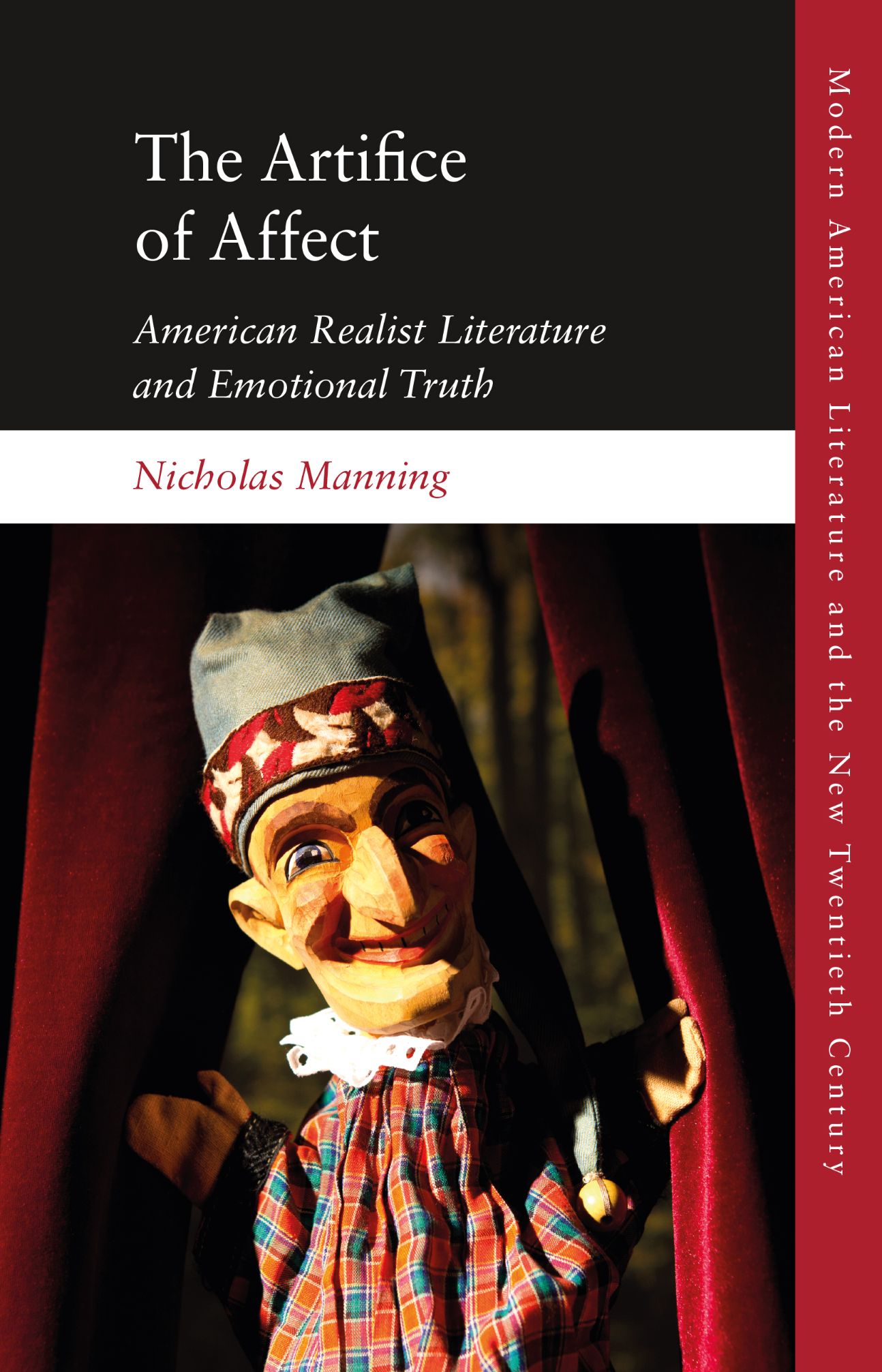
Nicholas Manning, The Artifice of Affect: American Realist Literature and Emotional Truth
Edinburgh University Press, in the series "Modern American Literature and the New Twentieth Century" edited by Martin Halliwell and Mark Whalan, ISBN Hardback: 9781399507998, January 2024.
https://edinburghuniversitypress.com/book-the-artifice-of-affect-hb.html
Is emotional truth a damaging literary and cultural ideal? The Artifice of Affect proposes that valuing affective authenticity risks creating a homogenized self, encouraged to comply only with accepted moral beliefs. Similarly, when emotional truth is made the primary value of literature, literary texts too often become agents of conformity. Nowhere is this risk explored more fully than in a range of American realist texts from the Cold War to the twentieth century’s end. For the works of writers such as James Baldwin, Saul Bellow, Kathleen Collins, Paula Fox, Ralph Ellison, or Richard Yates, formulate trenchant critiques of true feeling’s aesthetic and social imperatives. The arguments at the heart of this book aim to re-frame emotional processes as visceral constructions, which should not be held to the standards of static ideals of accuracy, legitimacy, or veracity.
- Proposes a wide-ranging literary and cultural critique of the concept of true feeling, especially relevant to the United States’s current sociopolitical climate
- Represents the first book-length study using affect theory to analyze post-war realist literatures
- Argues that twentieth-century American realism is not a conservative genre, but rebels in surprising ways against restrictive notions of authenticity
- Links key concepts in current affect theory with writers such as Raymond Carver, Kathleen Collins, Ralph Ellison, Paula Fox, John Cheever or Philip Roth, who have never been analyzed using these tools
- Models a new transdisciplinary interaction between affect theory and literature, with literary texts used to reveal the ever-present artifice of corporal processes
- Combines methods from affect theory, literary studies, and the medical humanities
Table of Contents
List of Figures
Acknowledgements
Introduction: Against True Feeling
1. Can Realism Speak of Affect?
2. Beyond Natural Feeling: The Body as Artifice
3. Inimitable Affect: On the Mimesis of Emotion
4. Myths of Emotional Equilibrium
5. Medicalization, Pathologisation and the Intoxicated Self
Conclusion: The Theatre of the Affective Mind
Notes
Bibliography
Index
Reviews
"An elegant, impressive account of American realism's encounters with the aesthetic and political challenges of representing emotion. Boldly anti-foundationalist in its critiques of universalizing approaches to literary value, Manning's book embraces bodily agency and the fluidity and meta-reflexivity of affective circuits, with far-reaching consequences for understanding the creation of literary and ethical meanings." – Adam J. Frank, University of British Columbia
About the Author
Nicholas Manning is Professor of American Literature at Université Grenoble Alpes and a fellow of the Institut universitaire de France. Editor in chief for literature, aesthetics and philosophy of the Revue Française d’Études Américaines, he is the author of Rhétorique de la sincérité. La poésie moderne en quête d’un langage vrai (Honoré Champion, 2013).